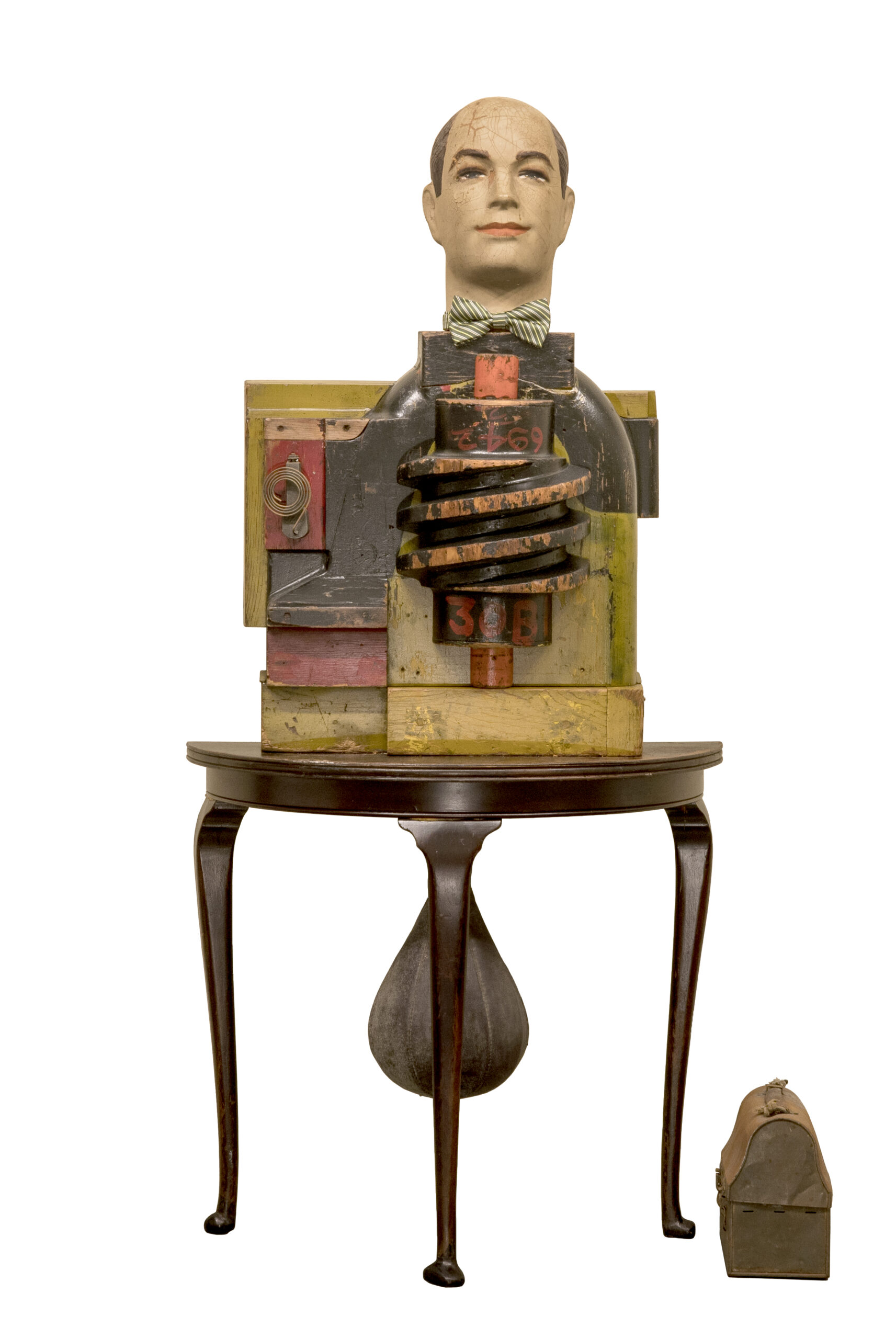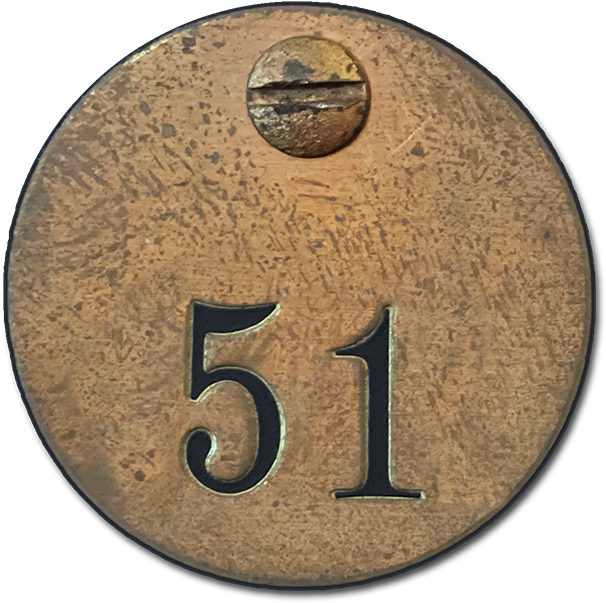
John Doe
(homage to Ed Kienholz)
(tag 21)
2012
Private Collection
Assemblage (55.5” x 31” x 14”)
- male mannequin head
- bow tie
- wood foundry molds
- mantle clock circular gong chime
- wood three-leg table
- Everlast speed bag (somewhat deflated)
- metal lunch pail
- aluminum Social Security card
Exhibition History:
California Heritage Museum, April 27-November 8, 2019
Description:
This artwork is called “JOHN DOE (homage to Ed Kienholz).” Famed beat era assemblage artist Ed Kienholz (1927 – 1994) created an artwork called JOHN DOE in 1959 reflecting his view of the “every man’s” condition in the 1950s.
Lou D’Elia created his JOHN DOE reflecting the current time period. D’Elia has been frustrated and concerned with the ongoing political dialogue surrounding proposed cuts to Medicare and Social Security, and the attempts at further “screwing” America’s ‘middle class.’ Basically the middle class have worked their entire lives with the promise that something would be there for them in their old age. Now it is uncertain whether the promises will be kept.
D’Elia’s JOHN DOE represents the typical blue collar American worker who basically starts off against the wall (hence the use of a three-legged table that is designed only for use against the wall). The fact that the American worker is being “screwed” is represented by the use of a large antique wood screw foundry mold for his chest/heart, and of course his balls are always being kicked (represented by the somewhat deflated Everlast speed bag hanging under the table. The ‘speed bag’ is used by boxers to sharpen their punching skills). On the backside of this artwork is an aluminum Social Security card that shows JOHN DOE’S Social Security number 000 – 00 – 0000 representing his likely fate. This artwork, as is true with all artworks by D’Elia, has a vintage numbered factory tool checkout tag attached to the artwork next to the artist’s signature.
D’Elia uses old foundry molds in his art because his father was a pattern-maker and made similar things out of wood for a living and so D’Elia grew up with them in his life. Sadly these handmade foundry molds are discarded objects now much like the American workers who have lost their jobs because their places of employment have closed and gone out of business or because they are older workers whose once valued skills have become obsolete due to advancing technology.
Publication History:
2019 LGBT Heritage Month Calendar and Cultural Guide
Department of Cultural Affairs, City of Los Angeles. (Page 71)


